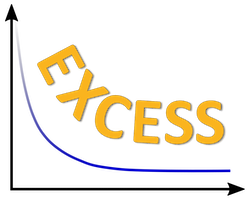The EXCESS workshop series started in 2021 in order to understand as a community the origins of the excess signals observed by various low-energy dark matter and CEvNS experiments, by bringing together experts and other interested researchers in the field of cryogenic, CCDs, gas detector experiments, and particle physics. The series intends to summarize what we know about these excesses, what we don’t know, and what we can do to understand it better.
You can find here the link to the first meeting in June, 2021:
https://indico.cern.ch/event/1013203/
EXCESS 2022 follows the previous edition to gather together low-energy detector experimentalists and theory colleagues to discuss and exchange the latest advances in related fields on possible sources of the excess origins and future efforts in understanding experimental signal observations. In particular, we are interested in exploring any new physics scenarios that we have yet to exploit, new developments that could enable novel direction searches, and future calibration tool innovations to improve the sensitivity of measurements at these low energies. The topics covered by EXCESS 2022 propose an overview of the background contributions from low-energy experiments, including dedicated calibration measurements to understand the excess signals observed and future efforts to reveal the existence of possible new sources of backgrounds seen as excesses.
Talks are by invitation only.
The paper following last year's EXCESS Workshop was submitted to arXiv last week! You will find it here: EXCESS Workshop: Descriptions of rising low-energy spectra .
Zoom Link
https://fnal.zoom.us/j/9462267078
The passcode was shared via email. Please contact us if you haven't received it or can't find it.
Registration
We ask everyone to register for the EXCESS2022 workshop, if you want to attend any of the sessions. Access to sessions will be possible using a key given to registered participants only. There will be no registration fee.
Advisory Board
Alexander Fuss
Felix Wagner
Florian Reindl
Margarita Kaznacheeva

